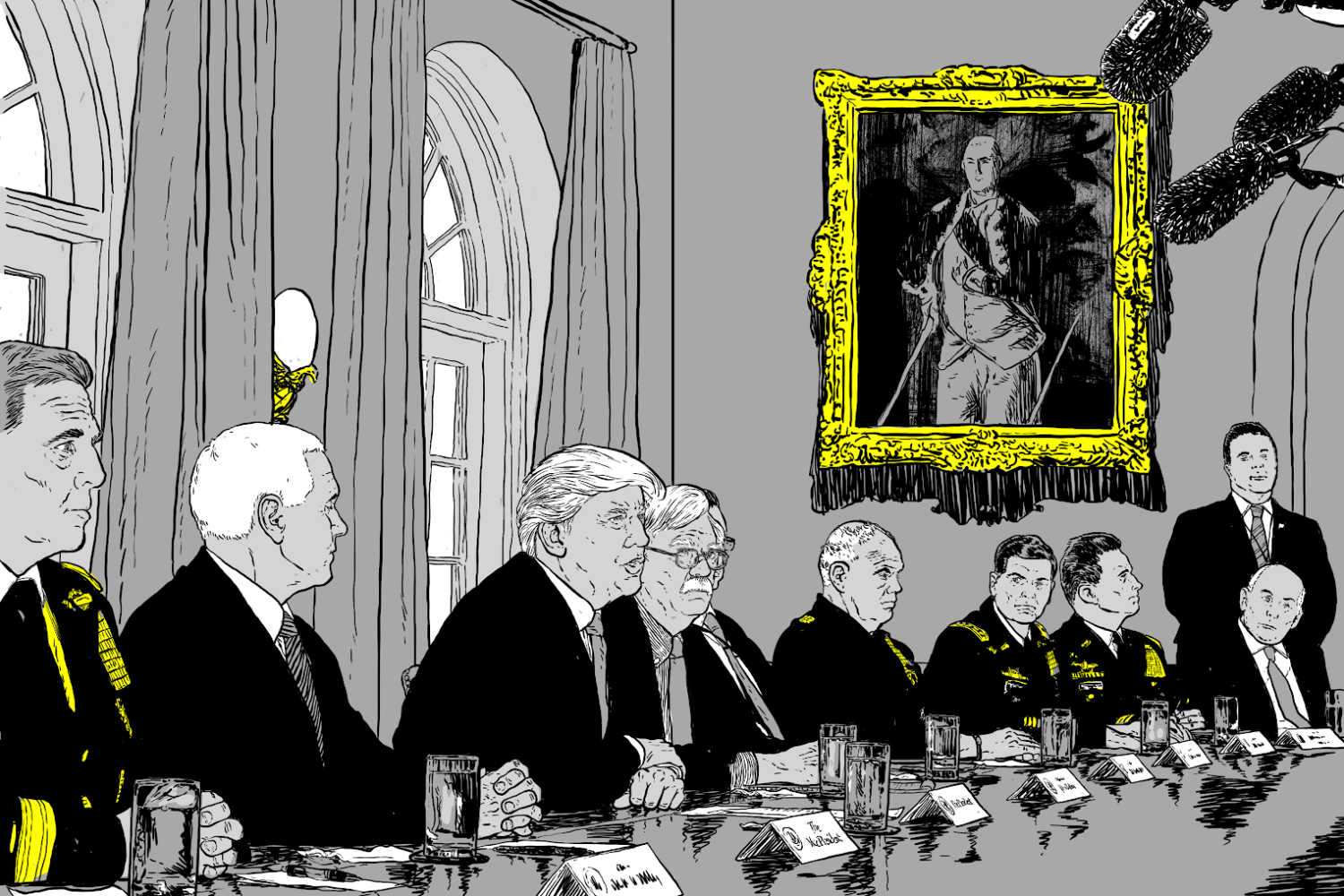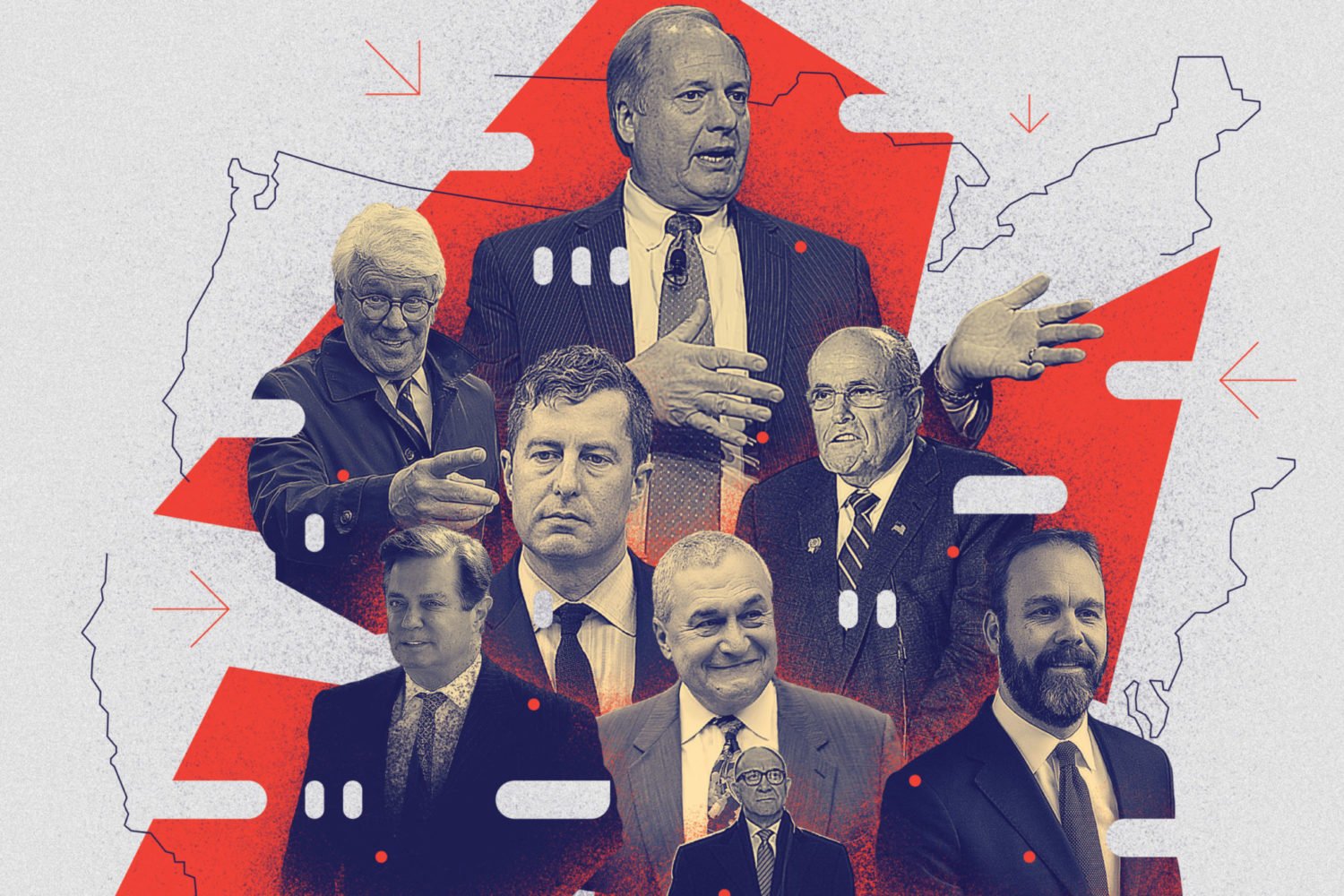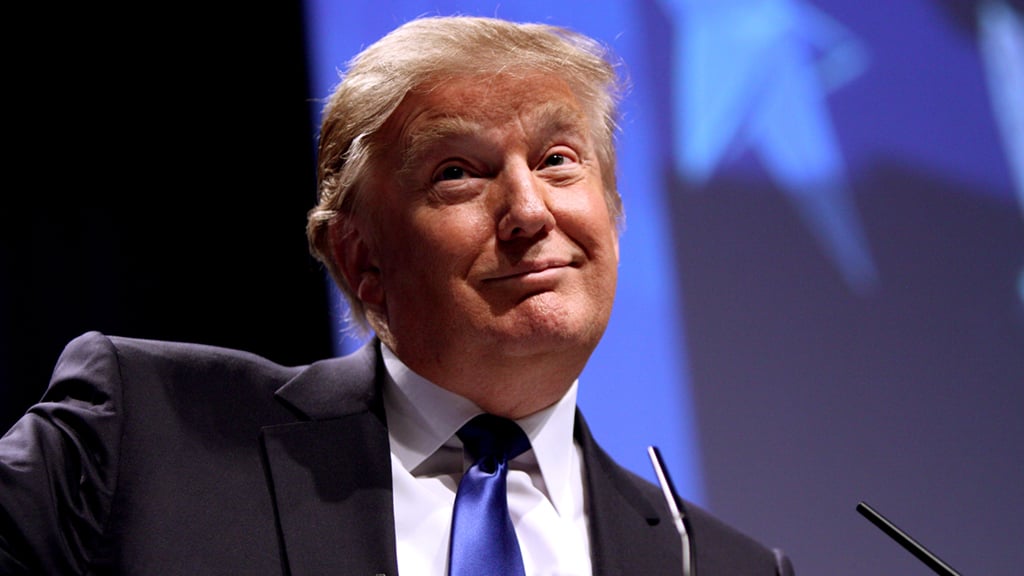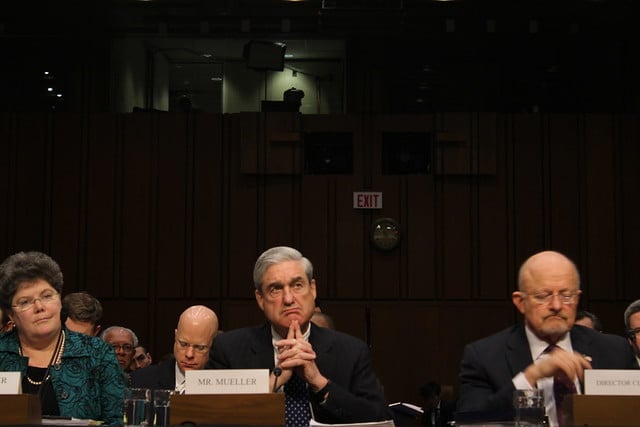Though it feels like a lifetime ago, Rick Gates was once a central figure in the biggest news story in the country. The 48-year-old Republican operative was a protege of Paul Manafort, the lobbyist turned 2016 Trump campaign chairman whose political work in Ukraine became the subject of special counsel Robert Mueller’s investigation.
In 2018, after Gates and Manafort were indicted on money laundering, conspiracy, and other charges, Gates broke ranks with his longtime business partner and became the star witness in the government’s prosecution. Manafort, who was ultimately convicted on tax and bank fraud charges, is currently serving a seven-and-a-half year sentence.
At the time of his testimony, Gates had already pleaded guilty to two charges; lying to federal investigators and conspiring with Manafort to hide millions of dollars in overseas earnings from federal tax officials. More recently, Gates—who received a 45-day jail sentence for his crimes—has written a book, Wicked Game. We recently spoke with him about his decision to plead guilty and to testify against Manafort.
In your testimony, you admit to helping Paul Manafort evade taxes, and you also admit to embezzling money from Manafort. Why did you do those things?
Look, in terms of the taxation issue, I mean, the Special Counsel obviously leveled a lot of charges. The money laundering charge made absolutely no sense—unless somebody can explain to me how you launder money to yourself, because that’s exactly what Paul was doing. In the construct, he was loaning money to his companies. And there is an essential piece of information—I actually include this in my book—where the accountants said that it was permitted to basically make these loans for your companies.
The way that [the Special Counsel’s Office] justified it and brought that charge is that because Paul did not claim the income in that specific year that he received the income, then they were basically saying that he was not reporting the full amount of taxes on the money he made. However, what he was doing, it was almost like he was punting the ultimate tax bill down the road [by loaning money to companies he controlled]. And so the idea was that he would ultimately have to pay taxes.
I’m sure if you dig into a lot of people’s finances it’s not uncommon to see people kind of not pay taxes in that year because they don’t have the cash available, but then to construct loans so that they are going to pay it the next year. That’s the type of person Paul was. He would always spend the money he had, and then he believed that another pay day was going to come in down the road.
Why then did you plead guilty to the charges?
Look, I don’t have the financial resources to fight at trial. The second and most important thing is I would have had to have gone to trial with Paul. And at least for me, I didn’t know everything that he had done. I learned a lot myself from the trial. So we made a decision at the time, the best that we could. Now, look, I own up to the mistakes that I made. Unfortunately, some of the issues that I got charged with were a direct result of Paul. They had nothing to do with me.
You didn’t have the money to withstand the pressure from prosecutors, the way that Manafort could.
Oh yeah, absolutely. There was no question. Paul made a lot of money, but he didn’t pay a lot of money. People didn’t understand—even at the Special Counsel level—`how Paul made so much and why he wouldn’t pay his staff, his consultants at least a nice fee. Look, we were all getting paid pretty well. But it was more like a 90-10 financial split versus a fairer balance, which I think people were questioning.
How did you make the decision to testify against Paul?
The issue here is that with Paul, [the Special Counsel’s Office] had every document they allegedly needed to bring charges against Paul. All I did was go in and kind of fill in some holes, and actually in one instance I actually helped Paul tremendously because originally the Special Counsel believed that he had not paid taxes on $150 million of earned income [and I showed them that the figure was actually much lower]. So in my mind, I didn’t flip or turn. The evidence was already there.
What’s your relationship like with Paul Manafort like now?
I have not talked to him since the day I pled.
Do you have any sense of how Manafort views your decision to plea? Does he view it as a betrayal? Or does he view it the way you’re describing it—that your testimony against him was insignificant because the Special Counsel’s Office already had everything they needed to charge him?
I’ve talked to a longtime mutual friends of ours, and the one thing that he said to me, which I think was pretty telling, was that Paul hadn’t even really come to grips with what he did. It’s almost like he was in denial about his own situation. My personal belief was that Paul was clearly under the impression that he was going to get a pardon before his trial. And I just thought that was ludicrous. Even if the president wanted to do it, he would have every advisor telling him not to do it.
Are you still in contact with any of your old colleagues at Black, Manafort & Stone, the now-defunct D.C. lobbying firm where Manafort was a founding partner and where you got your start in the political-influence business in the mid 1990s?
Yeah I do. There’s a couple guys I was very close to that I still hear from. I wonder about the other guys too because that firm, as you probably were aware, was based on loyalty. There was this idea that all these guys were loyal to each other. I’m sure as I move forward with my life and get to see some of these guys again at some point, I’m sure there’s probably going to be issues to work out, and people are going to question why I did the action I did. But I’d say to anybody, what I went through and what I had to do for my family was the most important thing. And I still stand by that.

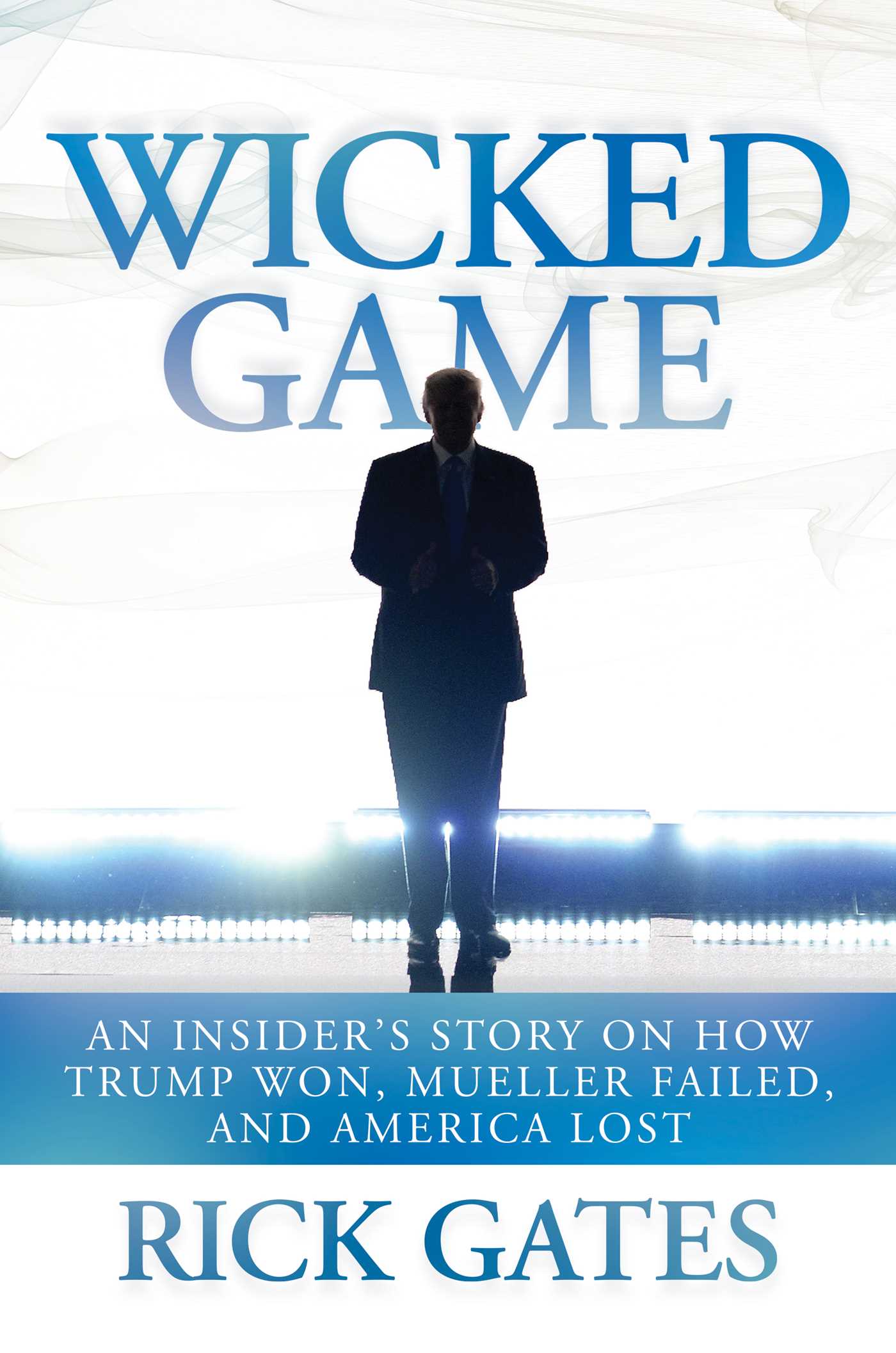
![Luke 008[2]-1 - Washingtonian](https://www.washingtonian.com/wp-content/uploads/2017/10/Luke-0082-1-e1509126354184.jpg)






